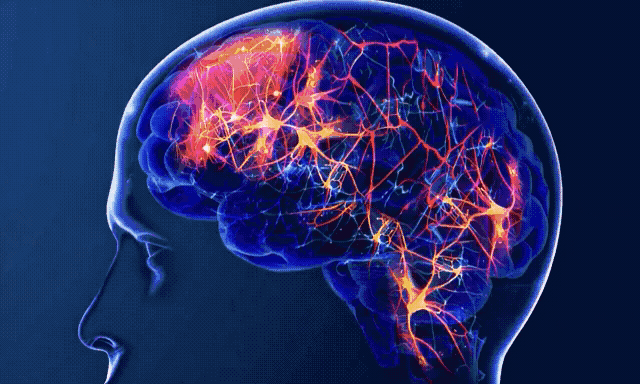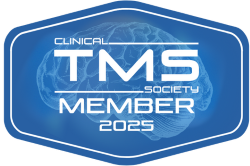Sleep Deprivation and Depression: How TMS Breaks the Cycle
September 3, 2025
How chronic insomnia literally rewires your brain for depression—and why TMS breaks the cycle at its source

In this article:
- How sleep loss physically changes depression circuits in your brain
- Why treating insomnia with sleep pills makes depression worse
- Real patient stories of breaking the sleep-depression cycle
- The brain science behind why you can't just "sleep when you're tired"
- How TMS restores both natural sleep and mood regulation simultaneously
_________
Sleep deprivation doesn't just make you tired. It literally rewires your brain for depression. And once that rewiring happens, you can't just "catch up" on sleep anymore. Your brain has learned a different pattern.
We've been thinking about this backwards. Everyone knows depression causes insomnia. But chronic insomnia causes depression too.
Not just feeling sad because you're tired. Actual clinical depression. Brain chemistry changes. Neural pathway disruption. The whole thing.
Let me explain what happens in your brain when you don't sleep.
First week of bad sleep, your prefrontal cortex starts struggling. That's your executive function. Decision making gets harder. Emotional regulation gets shaky. Second week, your limbic system gets hyperactive. Amygdala firing too much. Everything feels like a bigger deal than it is. Third week, your hippocampus—the part that processes memory and learning—starts shrinking. Yeah, shrinking.
A month of broken sleep, and your brain is producing less BDNF. Brain-derived neurotrophic factor. The protein that helps neurons grow and connect. Six months, and you've got inflammation markers in your bloodstream that look exactly like depression.
Your brain has literally remodeled itself around sleep deprivation.
And now it can't remember how to do either thing well—sleep or feel good.
Doctor sees depression symptoms. Prescribes antidepressant. But the antidepressant affects sleep architecture. REM suppression, fragmented sleep, morning grogginess.
So now you're on medication for depression that was caused by sleep deprivation. But the medication makes sleep worse. Which makes depression worse. Which requires more medication.
Marcus came to me after eight months of this cycle. Started with work stress affecting his sleep. Lost maybe an hour a night, no big deal. But after a few months, he couldn't concentrate at work. Started making mistakes. Got more stressed. Sleep got worse. His primary doctor saw anxiety and depression. Started him on Lexapro. Helped the worry but wrecked his sleep even more.
Psychiatrist added trazodone for sleep. Helped him fall asleep but he'd wake up groggy and confused. Added Wellbutrin for the fatigue. Now he's on three medications and feels worse than when he started.
Because nobody addressed the fact that his brain had rewired itself around sleep deprivation. When you don't sleep, specific neural circuits break down. Not just any circuits. The exact ones that regulate mood.
The connection between your prefrontal cortex and limbic system gets disrupted. That's your emotional regulation highway. When it's broken, small problems feel overwhelming.
Your anterior cingulate cortex stops moderating between rational thought and emotional reaction. So you get stuck in loops. Rumination. Catastrophizing.
Your default mode network becomes hyperactive. That's the brain's screensaver—the thoughts that run when you're not focused on anything else. In sleep deprivation, it becomes negative thought generation.
This isn't psychological. It's neurological. Your brain has physically changed. And you can't think your way out of a brain architecture problem.
That's why TMS works when everything else fails. We're not treating symptoms. We're fixing the circuits.
TMS uses magnetic pulses to target the exact brain regions affected by chronic sleep loss. The dorsolateral prefrontal cortex. The anterior cingulate. The networks that control both sleep and mood.
We're not sedating you or flooding you with chemicals. We're retraining your neurons to fire in healthy patterns again.
Marcus started our KIND One-Day TMS Protocol after months of medication failures. He was skeptical. Exhausted. Ready to give up. Day three post-treatment, he slept six hours straight. First time in almost a year. "I woke up and my mind was quiet," he told me. "I haven't had a quiet mind since this whole thing started."
Week two, he was falling asleep within twenty minutes instead of lying awake for hours. Week four, his mood lifted without changing any medications.
Because when you fix the sleep circuits, you fix the depression circuits. They're the same circuits.
The research backs this up. Studies show chronic insomnia increases depression risk by 400%. Four hundred percent.
But here's the part that should make everyone pay attention. Treating insomnia with cognitive behavioral therapy reduces depression symptoms by up to 50%. Without antidepressants. Because depression that starts from sleep deprivation needs sleep circuit repair, not serotonin manipulation.
This isn't just about severe cases. Millions of people are walking around with subclinical depression caused by chronic sleep disruption. But their brains have quietly remodeled around sleep deprivation. And now they can't access the neural states that create resilience, joy, or hope.
They've tried everything. Sleep hygiene. Melatonin. Meditation apps. Nothing works because the circuits themselves need repair. If you've been chronically sleep deprived for months or years, your brain has learned to function in crisis mode. Even when there's no crisis.
We see this pattern constantly. People who think they have treatment-resistant depression. But really they have depression that started from sleep circuit breakdown.
When we treat the circuits with
TMS, both problems resolve. Sleep improves and mood lifts. Because we're not treating two separate conditions. We're treating one condition—dysregulated brain networks—that shows up as both insomnia and depression.
TMS gives your brain the stimulation it needs to rebuild healthy connections. To restore the delicate balance between sleep and wake systems. Between mood regulation and stress response.
If chronic sleep problems have led to depression or mood changes, the solution might not be more medications. It might be treating the brain circuits that control both conditions.

Meet the Author
Dr. Georgine Nanos, MD, MPH
Founder of Kind Health Group







